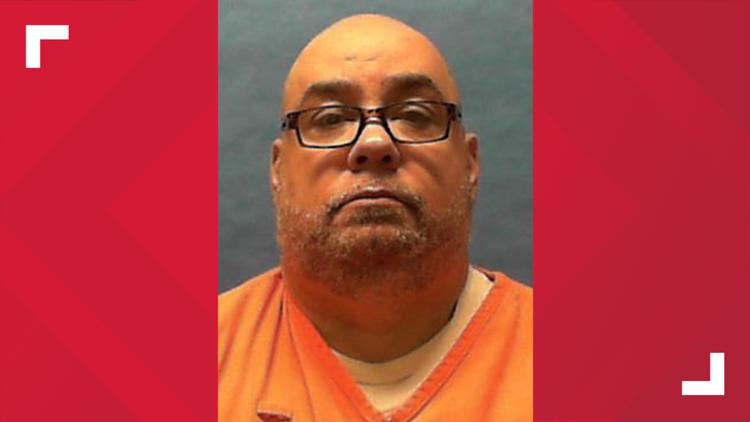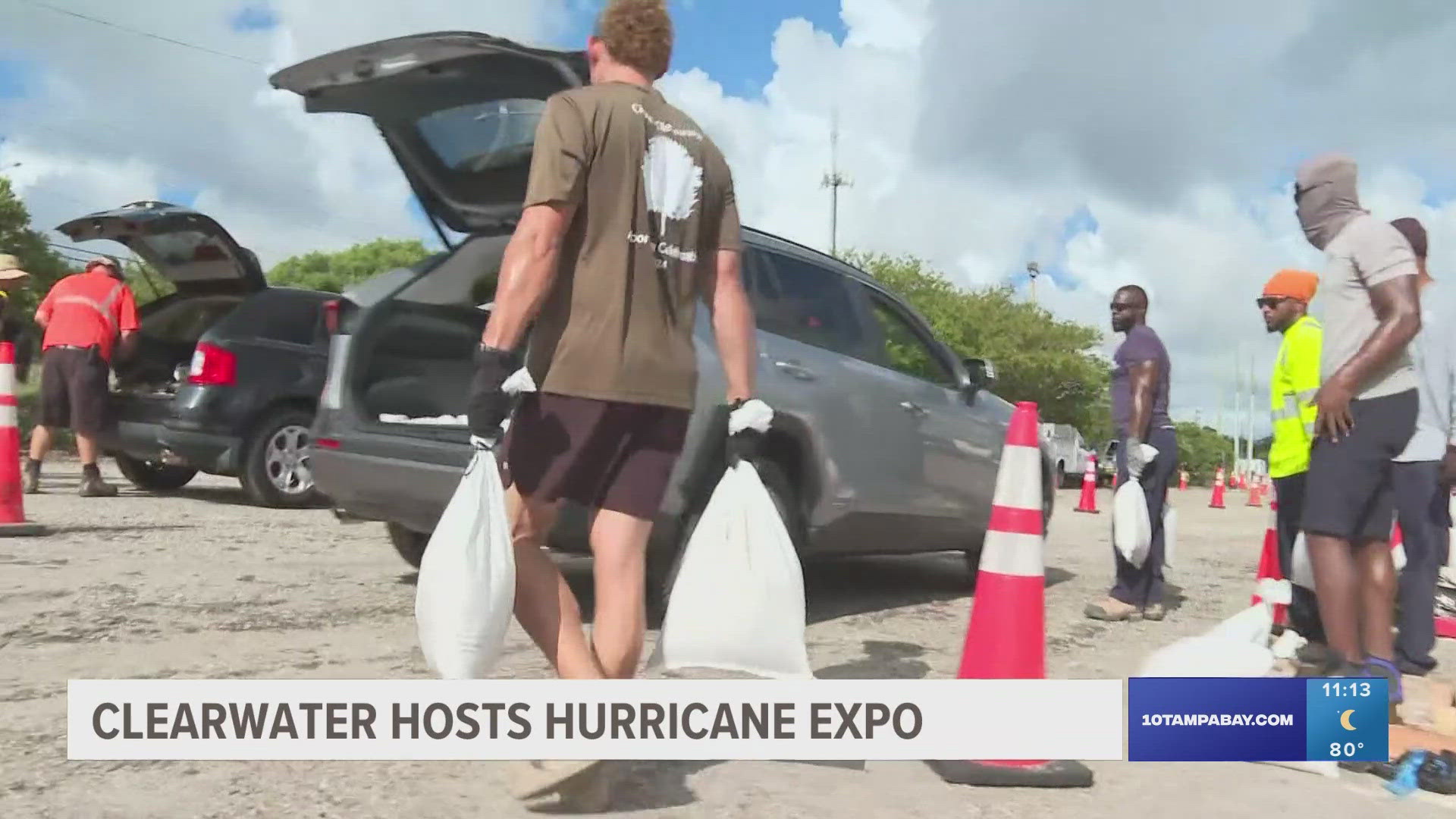ST. PETERSBURG, Fla. — A Florida man was sentenced to death again after his initial death sentence was overturned by the state Supreme Court. In 2019, a grand jury indicted Reynaldo Figueroa-Sanabria, 51, on two counts of first-degree murder for killing two people on their St. Petersburg houseboat in 2013.
He was sentenced to die by lethal injection unanimously by a jury. Then he appealed to the Supreme Court which affirmed his convictions but set aside his death sentence and ordered a new penalty proceeding.
Here's a breakdown of everything that has happened in this case since 2013:
What initially happened?
Two workers found Germana Morin and John Travlos stabbed to death on their houseboat in April 2013. They were found face down with duct tape raped around Morin’s ankles and around Travlos’ wrist and ankle, according to court records.
Figueroa-Sanabria stabbed Travlos more than 10 times, and Morin suffered a stab wound so deep that it hit a disc of her spinal cord. After, he took off with jewelry worth more than $80,000.
He was the two victims’ handyman and had a key to the houseboat so he could go in for work. He argued with Travlos previously about his pay weeks before the murder, according to witnesses and himself during the trial.
Figueroa-Sanabria’s girlfriend, Tessa Cooper, said she was woken up by a phone call from him around 4:30 a.m. the morning of the murder, and it sounded “like he was in a panic,” according to the Supreme Court opinion.
Cooper picked Figueroa-Sanabria near the marina where the houseboat was docked, and he told her he needed to travel to New York to see his brother. On the way to the airport, Figueroa-Sanabria said he changed his mind and would rent a car.
When they stopped at a gas station, Figueroa-Sanabria threw away grocery bags filled with bloodstained clothes. When the couple couldn’t find a rental car, they went to a jewelry store where Figueroa-Sanabria pawned off a necklace and bracelet for more than $2,500, the Supreme Court opinion read.
Figueroa-Sanabria found a rental car and traveled northeast and sent a package to his brother from Palm Coast with more than 100 pieces of jewelry.
Meanwhile, law enforcement investigating the murders heard the name “Rey” come up repeatedly and found the apartment complex where Figueroa-Sanabria and Cooper lived. Cooper told detectives what happened that morning and a judge issued an arrest warrant for Figueroa-Sanabria.
An officer in North Carolina arrested him hours later and said law enforcement in Florida wanted to speak with him to which Figueroa-Sanabria said he “figured they would,” according to court records.
The money from the jewelry store was found in his car, which he tried to get rid of outside the county jail where he was booked. An officer found it tucked behind a gutter.
Issues with his lawyer
The court appointed Keith Hammond as Figueroa-Sanabria’s attorney in 2014 after the public defender’s office withdrew for conflict reasons.
Figueroa-Sanabria complained numerous times that he wanted a new attorney because of a lack of communication and preparation for trial. Hammond also voiced his concerns to the court and said it should "seriously consider appointing someone else."
All three motions filed by Figueroa-Sanabria to get a new lawyer were denied by the trial court.
During the penalty phase of the case, Daniel Hernandez took over as counsel.
Jury convicts Figueroa-Sanabria
After a two-week trial, a jury found him guilty of the two murders based on a mountain of evidence in October 2019.
Witnesses such as Cooper, his brother's girlfriend testified about Figueroa-Sanabria's involvement in the murder. Experts such as the medical examiner, an intelligence analyst and a DNA analyst all took the stand and presented evidence that persuaded the jury that he was guilty.
Travlos' blood was found on the inside of the van Cooper drove to pick up Figueroa-Sanabria from the marina and Figueroa-Sanabria's DNA was on a roll of duct tape used to bind Travlos and Morin, according to court documents.
The defense only called one witness: Figueroa-Sanabria.
He denied killing the couple and told a completely different story where he drove Cooper to a detox program after stopping at a gas station to throw away a bag. He told jurors she was the one who wanted to sell jewelry, and the bloodstained clothes weren't his.
How did the Supreme Court rule?
Florida's highest court reviews all death sentences. Last year, they found that Pat Siracusa, Sixth Judicial Circuit judge, misinformed Figueroa-Sanabria about his options for representation during the penalty phase.
Siracusa told him that his attorney could present mitigating evidence on his behalf or he could represent himself, and Figueroa-Sanabria chose the latter.
Justices said they were unsure if Figueroa-Sanabria made a fully informed decision when he decided to waive his right to an attorney.
The reason he waved the attorney was that he didn't want mitigating evidence presented to the jury and he was under the impression that reinstating his attorney would mean that would happen.
"The trial court's statement of the law to the contrary, which promoted Figueroa-Sanabria to waive his right to counsel, means we cannot conclude that Figueroa-Sanabria's waiver was knowing, intelligent, and voluntary," the Supreme Court's opinion read.
Now what?
On May 13, Siracusa sentenced him to die again.
Figueroa-Sanabria's latest penalty trial happened in April where he asked for life in prison and a trial without a jury, meaning Siracusa would make the final decision about the sentence.
The judge said no cause was shown as to why Figueroa-Sanabria should be sentenced to death, according to Pinellas County court documents.
This decision was appealed again and will be before the Supreme Court again, according to the notice of appeal form filed on May 15. The document says Figueroa-Sanabria is taking the appeal to the Second District Court of Appeals but since it's a death penalty case, it will be transmitted to the state's Supreme Court.



